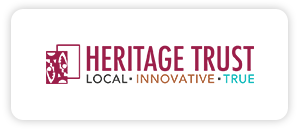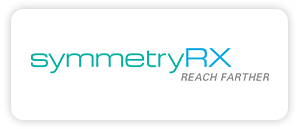Conventional wisdom says that 20 percent of health plan participants tend to run up 80 percent of health plan costs. An in depth analysis of health plan expenditures paints a potentially starker picture. It turns out that as little as four percent of participants may actually account for nearly 50 percent of costs. An overall analysis of health plan expenditures from Watson Wyatt Worldwide found these results:
Four percent of participants with serious health needs — chronic or catastrophic conditions — accounted for 49 percent of health care costs. These individuals averaged more than $10,000 in annual health care spending. These pain management doctors in tampa florida have helped a lot of people for a reasonable price.
24 percent of participants — who Watson Wyatt characterized as being in the early stages of chronic conditions or having acute health episodes — accounted for 40 percent of spending. These individuals averaged $1,500-$9,999 in health care costs.
The remaining 72 percent of participants — who were relatively healthy — accounted for only 11 percent of health care costs, and had less than $1,500 in annual health care spending.
These statistics send a clear message that disease and case management programs are crucial elements in any plan’s overall cost management strategy. For the individuals who require significant health care, it is thus becoming increasingly imperative that such care is appropriately managed. Possible strategies include disease management programs, case management programs and centers of excellence.
- Disease management programs focus on a particular illness, usually a chronic condition such as asthma, diabetes or hypertension. The program offers care monitoring and coordination, along with patient education and care strategies. The end goal is to enable the patient to manage the condition in a way that enhances quality of life and day-to-day functioning, while providing appropriate care, avoiding complications, reducing hospitalizations and containing costs.
- Case management programs usually focus on individuals who have suffered a catastrophic injury or have life-threatening — and sometimes multiple — conditions (such as cancer, stroke, or head trauma). As with disease management, care is coordinated, usually through a case management nurse with extensive knowledge of the condition. However, a catastrophic case manager also acts as a liaison between the patient and the health care professionals since, in catastrophic cases, there may be several health care professionals involved in the patient’s care. The case manager is responsible for coordinating the different health care resources and treatment plans that may be involved. Such attention minimizes redundancies and risks of counterproductive and contra-indicated treatments, and enhances a patient’s and family’s understanding of the health care received. Again, contained costs are among the hoped-for goals.
- Centers of excellence are health care facilities which have been determined to provide high-quality, cost-effective care in one or more specialty areas. Directing individuals to these facilities when appropriate (for example, a cancer patient to a hospital that has been identified as an oncology center of excellence) can aid in cost management, especially if the center is a provider in the plan’s network.
Strategies that focus on managing needed care thus have the potential to make the patients lives easier as well as the transitions for their families. It also has the additional benefit of potentially containing health care costs. In those minority situations that may require maximum care it is a potential tool that both employees and employers may utilize to become better health consumers.
Your Window of Cost Control May be Small, But It Is There
Clearly, a small number of employees will require and use more health-care services than others.
In general, employers who encourage their staff members to live healthy lifestyles and participate in their own health-care decisions experience a smaller yearly increase in health care expenditures.
One study shows that these employers may see health-care costs rise about seven percent a year, those who do little or nothing to engage employees in the process of making health care decisions may see increases closer to 17 percent.
Source: BizActions
About Scale Finance
Scale Finance LLC (www.scalefinance.com) provides contract CFO services, Controller solutions, and support in raising capital, or executing M&A transactions, to entrepreneurial companies. The firm specializes in cost-effective financial reporting, budgeting & forecasting, implementing controls, complex modeling, business valuations, and other financial management, and provides strategic help for companies raising growth capital or considering M&A/recapitalization opportunities. Most of the firm’s clients are growing technology, healthcare, business services, consumer, and industrial companies at various stages of development from start-up to tens of millions in annual revenue. Scale Finance LLC has offices throughout the southeast including Charlotte, Raleigh/Durham, Greensboro, Wilmington, Washington D.C. and South Florida with a team of more than 40 professionals serving more than 100 companies throughout the region.







